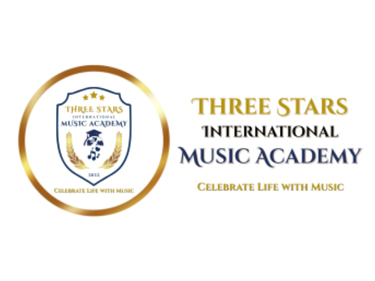
What’s the Right Age to Start Learning Music? A Guide for Parents
As a parent, you may often wonder: “Is my child too young to learn music?” Or, “Should I wait until they’re older?” At Three Stars Music Academy, we’ve seen children as young as 4 years old develop amazing musical skills—with the right environment, teacher, and approach. If your child shows interest in rhythm, singing, or instruments, that’s a beautiful sign to start! Let’s help you figure out the best age and instrument to begin your child’s musical journey.
Sugander Santhapuri
4/12/20253 min read


Music is a universal language that transcends boundaries and cultures. Introducing children to music at an early age can significantly enhance their cognitive, emotional, and social development. However, many parents grapple with the question: "When is the right time for my child to start learning music?" This comprehensive guide aims to provide insights into the optimal age for children to begin their musical journey, considering various factors such as developmental readiness, instrument suitability, and the myriad benefits of early musical exposure.
🎵 Understanding the Importance of Early Musical Exposure
Research indicates that early exposure to music can have profound effects on a child's development. Engaging with music from a young age can:
Enhance Cognitive Skills: Music education has been linked to improved memory, attention, and problem-solving abilities.
Boost Language Development: Learning music can aid in the development of language and literacy skills by enhancing auditory discrimination and phonological awareness.
Foster Emotional Growth: Music provides an outlet for emotional expression and can help children understand and manage their emotions.
Improve Social Skills: Participating in group music activities encourages teamwork, cooperation, and communication.
Develop Motor Skills: Playing instruments and dancing to music can enhance fine and gross motor coordination.
🧒 Age-by-Age Guide to Starting Music Education
Infants and Toddlers (0-3 Years)
At this stage, children are highly receptive to sounds and rhythms. While formal music lessons may not be appropriate, parents can:
Engage in Musical Play: Sing lullabies, play simple instruments like shakers, and encourage movement to music.
Attend Music Classes: Enroll in parent-child music classes that focus on musical exploration and bonding.
Preschoolers (3-5 Years)
Children in this age group can begin more structured musical activities:
Group Music Lessons: Introduce basic musical concepts through fun, interactive group classes.
Early School Age (5-7 Years)
This is an ideal time to start formal music lessons:
Piano or Violin Lessons: These instruments are often recommended due to their suitability for young beginners.
Developing Reading Skills: Children can begin learning to read music notation alongside their instrument instruction.
Older Children (8+ Years)
Children who start music lessons at this age can still reap significant benefits:
Instrument Choices: Guitar, drums, and wind instruments become more accessible as children's physical coordination improves.
Enhanced Focus: Older beginners often have better concentration and can grasp complex musical concepts more readily.
🎸 Choosing the Right Instrument
Selecting an appropriate instrument is crucial for sustaining a child's interest in music:
Piano: Ideal for beginners due to its straightforward layout and visual representation of musical concepts.
Violin: Suitable for young children; the Suzuki method often starts students as young as three.
Guitar: Best for children aged seven and above; smaller-sized guitars are available for younger players.
Drums: Great for developing rhythm and coordination; suitable for children aged five and above.
Voice: Formal voice lessons are typically recommended for children aged seven or eight, once their vocal cords have matured.
🧠 Recognizing Readiness for Music Lessons
Not all children are ready to start music lessons at the same age. Consider the following indicators:
Interest in Music: Does your child show enthusiasm for music and musical activities?
Attention Span: Can your child focus on a task for at least 15-30 minutes?
Physical Readiness: Does your child have the necessary motor skills to handle an instrument?
Emotional Maturity: Is your child able to follow instructions and handle constructive feedback?
🏠 Supporting Your Child's Musical Journey at Home
Parental involvement is key to a child's success in music:
Create a Musical Environment: Play a variety of music at home and encourage spontaneous musical expression.
Establish a Practice Routine: Set aside regular times for practice to build discipline and consistency.
Celebrate Progress: Acknowledge and praise your child's efforts and achievements to boost confidence.
Stay Engaged: Attend your child's performances and communicate regularly with their music teacher.



